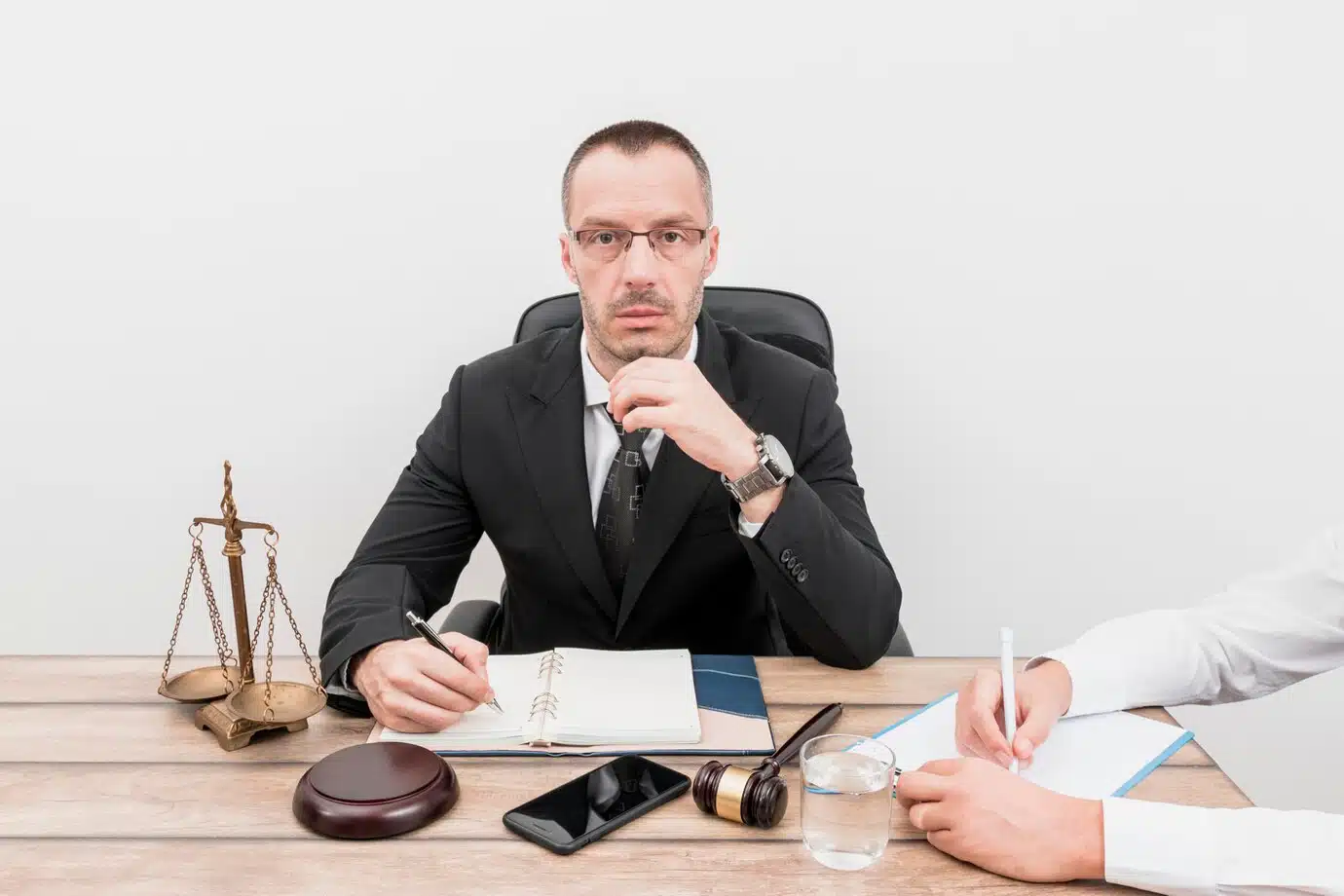Probate is a legal process that involves administering a deceased person’s estate, ensuring that their debts are settled, assets are distributed according to their will (or according to state law if there is no will), and all taxes and obligations are handled. While this might sound straightforward, probate can quickly become complicated. This is where a probate lawyer comes in.
A probate lawyer is a legal professional specializing in guiding clients through the probate process. Their role is essential to ensuring the estate is properly administered, disputes are resolved, and that the decedent’s wishes are honored according to the law. This article explores the significance of probate lawyers, what they do, and why their services are crucial during an emotionally taxing time.
Key Takeaways
- Probate Lawyers Ensure Legal Compliance: They help navigate the complex legal requirements of probate to ensure all actions comply with the law.
- Resolve Family Disputes: They mediate conflicts among family members, reducing tensions and ensuring the estate is administered without further issues.
- Handle Estate Taxes and Debts: They assist in managing estate taxes, ensuring that all obligations are met before assets are distributed.
- Reduce Liability Risks: They protect executors and administrators from personal liability by ensuring all responsibilities are carried out appropriately.
- Save Time and Stress: Probate lawyers handle the intricacies of the probate process, saving family members time and reducing stress during a difficult time.
What Is Probate?
Before delving into the role of a probate lawyer, it’s essential to understand what probate is. Probate is the legal process used to settle the affairs of a deceased person. It typically involves the following steps:
- Validating the Will: If the deceased left a will, the first step in the probate process is to validate the will.
- Appointing an Executor or Administrator: If there’s a will, the executor named in the will is appointed by the court. If there’s no will, an administrator is appointed to oversee the estate.
- Inventorying the Estate: All assets of the decedent must be located, appraised, and inventoried, including property, financial accounts, personal belongings, and more.
- Paying Debts and Taxes: The estate is responsible for settling any outstanding debts and taxes before assets can be distributed.
- Distributing Assets: Once debts and taxes are settled, the remaining assets are distributed to the beneficiaries according to the will or state law (if no will exists).
- Closing the Estate: Finally, the estate is officially closed when all assets have been distributed and all legal matters are settled.
In this complex process, a probate lawyer plays a crucial role in helping the personal representative (executor or administrator) navigate the legal requirements, deadlines, and intricacies of probate law.
Also Read : The Role Of Counsel Lawyers: Navigating Legal Advice And Representation
What Does a Probate Lawyer Do?
1. Assisting with the Probate Process

The primary responsibility of a probate lawyer is to guide the executor or administrator through the entire probate process. This includes filing the will with the court, ensuring that the correct forms and documentation are submitted, and keeping track of all the deadlines that must be met during probate.
The lawyer ensures that the probate process is followed properly, which helps to avoid complications that could lead to costly delays or legal issues down the road.
Also Read : What Does A Trial Lawyer Do And Why Are They Essential To The Legal System?
2. Interpreting the Will and Trusts
A will can often be a complicated document, and sometimes it can be unclear how the wishes of the decedent should be carried out. Probate lawyers are skilled in interpreting legal documents such as wills, trusts, and other estate planning instruments.
In some cases, a decedent may have left instructions that conflict with each other or may have made mistakes in drafting their will. A probate lawyer is there to interpret these documents and ensure that the decedent’s wishes are carried out as closely as possible, all within the legal boundaries.
3. Probate Litigation and Disputes
Not all probate cases go smoothly. Family members or beneficiaries may contest the will, claim undue influence, or question the validity of the estate. A probate lawyer helps navigate these disputes, either by negotiating settlements or representing clients in probate litigation.
In some cases, there may be allegations of fraud, forgery, or undue influence, which can lead to lengthy court battles. A probate lawyer can help resolve these disputes and protect the interests of the estate and its beneficiaries.
Also Read : Common Defenses Used By Crime Lawyers In Criminal Trials
4. Handling Estate Taxes
Probate lawyers help ensure that all required estate taxes are calculated and filed. The estate may owe federal or state taxes, which must be paid before assets can be distributed to heirs. The lawyer works with tax experts to ensure that these taxes are properly assessed and that any applicable deductions or exemptions are used to reduce the tax burden.
5. Guiding Executors and Administrators

Executors and administrators are often family members or friends who are not experienced in the complexities of estate administration. A probate lawyer helps these individuals understand their legal duties, avoid conflicts of interest, and prevent errors that could lead to personal liability.
The lawyer also helps with the practical tasks of gathering assets, paying debts, distributing property, and handling other responsibilities that can be overwhelming for someone with no legal or financial background.
Also Read : What Is Religious Law And How Does It Influence Societies?
6. Handling Complex Estates
In the case of larger estates, the probate process can become much more complex. These estates may involve multiple properties, intricate business interests, or international assets. A probate lawyer can help manage these complexities, ensuring that all assets are properly accounted for and that the estate is administered in compliance with the law.
Why Is the Role of a Probate Lawyer So Important?
1. Expert Legal Guidance
Probate law can be complicated, and an inexperienced executor or administrator may overlook key steps in the process. A probate lawyer offers expert legal advice and ensures that everything is handled correctly and in accordance with the law.
Without this guidance, there’s a risk of missing crucial deadlines or making legal errors that could result in costly delays or complications. Moreover, mistakes made during probate can have lasting legal consequences, including disputes among heirs or even lawsuits.
2. Reducing Family Conflict

The death of a loved one often triggers emotions that can lead to conflict among family members. Probate lawyers help reduce family tensions by ensuring the estate is administered according to the decedent’s wishes and state law.
They also serve as neutral third parties, helping to mediate disputes and maintain objectivity in cases of disagreement over the distribution of assets. This can be especially important if the decedent’s will is contested or if family members disagree over how the estate should be divided.
Also Read : Overview Of The Civil Law Legal System
3. Minimizing Delays
The probate process is time-consuming. A probate lawyer helps move the process forward by ensuring all the paperwork is filed properly and on time, debts are paid, and disputes are resolved efficiently. This minimizes delays and ensures the estate is settled in a timely manner.
4. Providing Peace of Mind
Dealing with the death of a loved one is emotionally and mentally exhausting. Having a probate lawyer in your corner provides peace of mind, knowing that the legal aspects of the estate are being handled professionally. It also allows the family to focus on healing rather than getting caught up in legal tangles.
5. Preventing Liability Issues
Executors and administrators have fiduciary responsibilities, which means they must act in the best interests of the estate. If they make mistakes, they could be held personally liable. A probate lawyer helps reduce the risk of liability by ensuring all legal requirements are met and that the estate is administered according to the law.
Also Read : What Are The Key Duties Of A Corporate Lawyer?
Conclusion
A probate lawyer plays a critical role in ensuring that a deceased person’s estate is handled legally, efficiently, and in accordance with the decedent’s wishes. From interpreting the will to managing estate taxes and resolving disputes, a probate lawyer offers invaluable support to executors, administrators, and family members. Their expertise can help avoid costly mistakes, reduce family conflicts, and provide peace of mind during what can be a difficult and emotional time.
FAQs
1. Do I need a probate lawyer if there is a will?
Yes, even if there is a will, a probate lawyer can help ensure that the will is properly validated, that the estate is administered according to the decedent’s wishes, and that all legal procedures are followed.
2. How much does a probate lawyer cost?
The cost of a probate lawyer varies depending on the complexity of the estate and the lawyer’s experience. Most probate lawyers charge either an hourly rate or a flat fee. In some states, attorneys’ fees for probate work may be set by law and can be a percentage of the estate’s value.
3. What happens if there is no will?
If there is no will, the state will determine how the estate is divided according to state laws of intestate succession. A probate lawyer can help ensure the process is carried out correctly, whether there is a will or not.
4. How long does probate take?
Probate can take anywhere from several months to several years, depending on the complexity of the estate, the number of assets, and whether any disputes arise during the process. A probate lawyer can help speed up the process by ensuring everything is filed on time and correctly.
5. Can a probate lawyer help with estate planning?
While probate lawyers handle the legal process after someone dies, many also offer estate planning services. Estate planning involves creating wills, trusts, and other legal documents to ensure that your assets are distributed according to your wishes and can avoid probate.
6. What if there are disputes among family members?
If family members dispute the will or the way the estate is being administered, a probate lawyer can mediate the situation, helping to resolve conflicts or, if necessary, represent the estate in court.
7. Do I have to go to court for probate?
In some cases, probate can be settled without going to court, especially if the will is uncontested and there are no complex issues. However, if there are disputes or complications, court hearings may be required. A probate lawyer will represent the estate in court if necessary.





